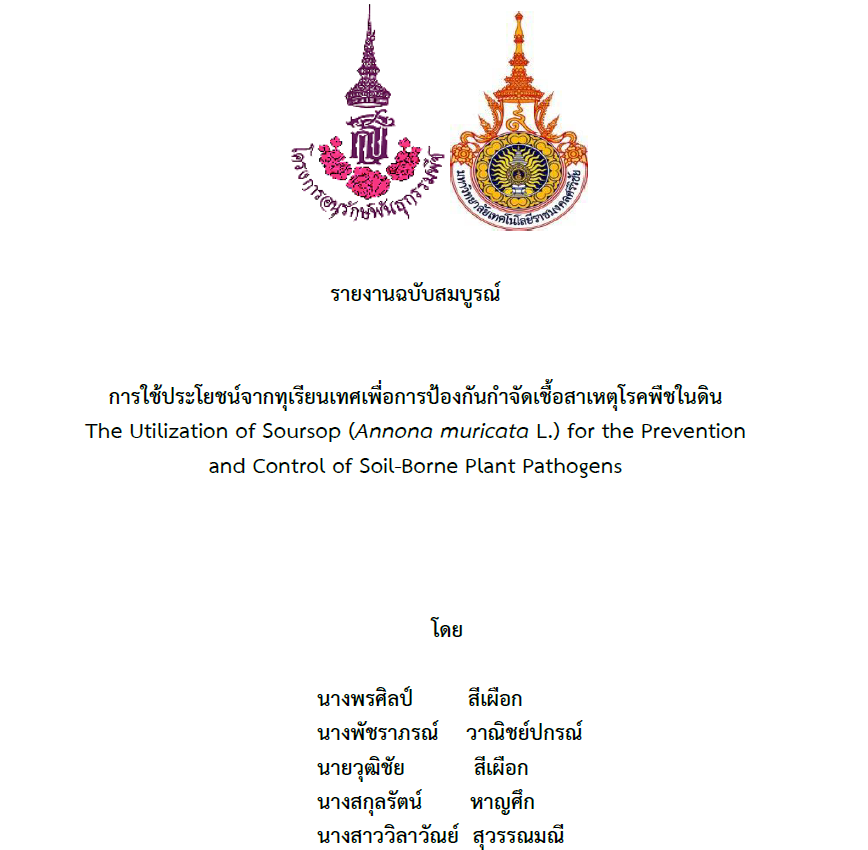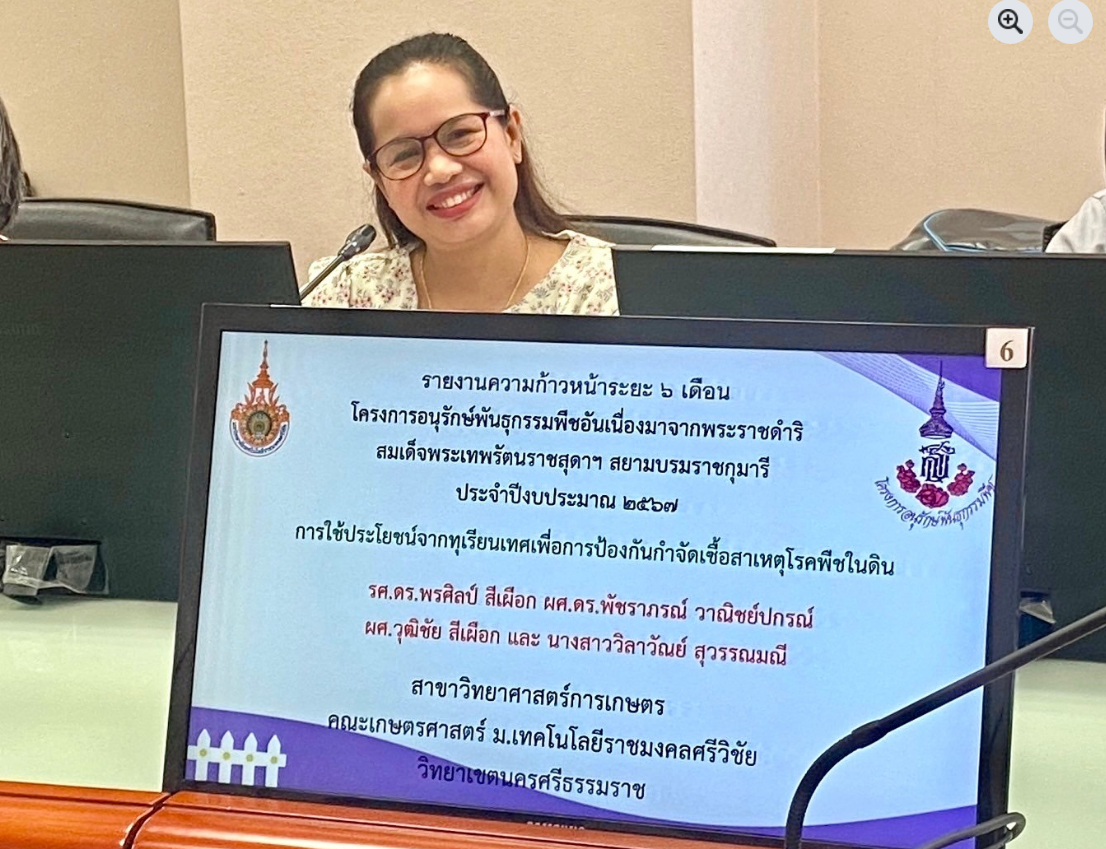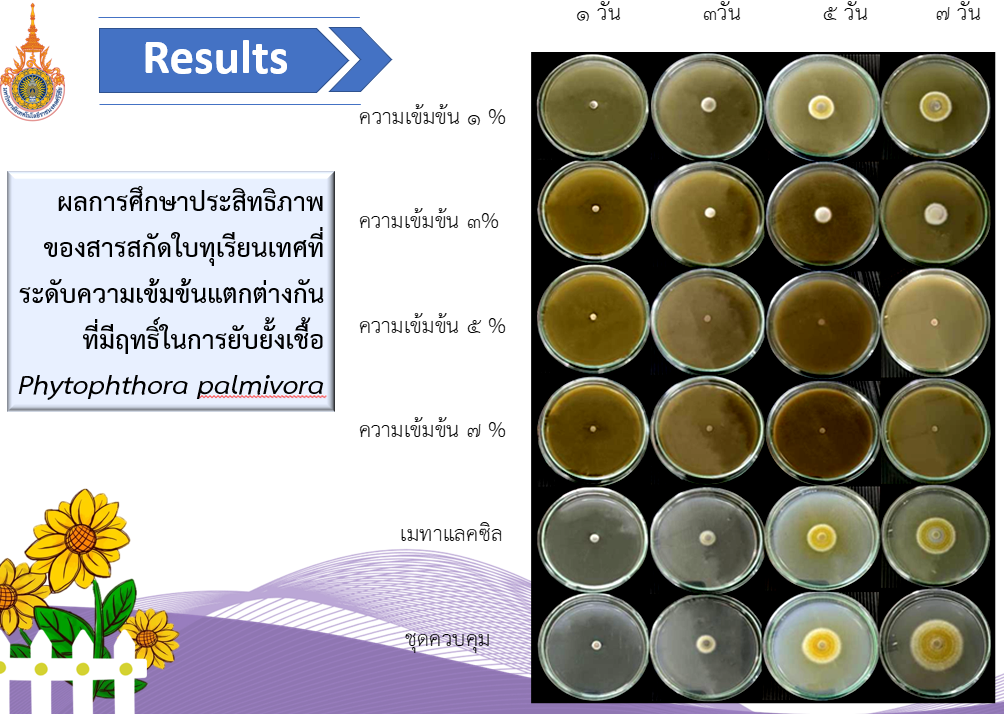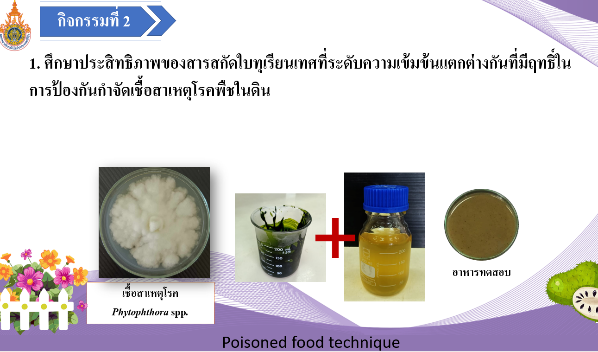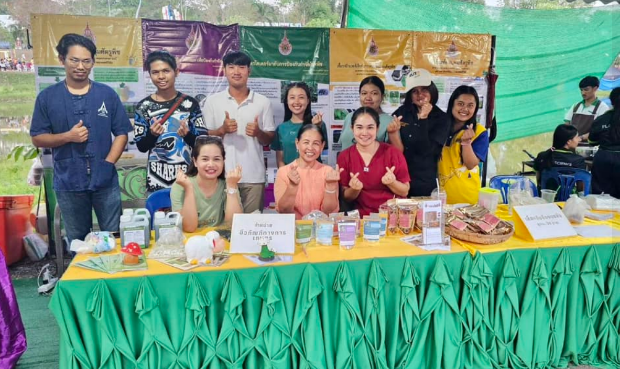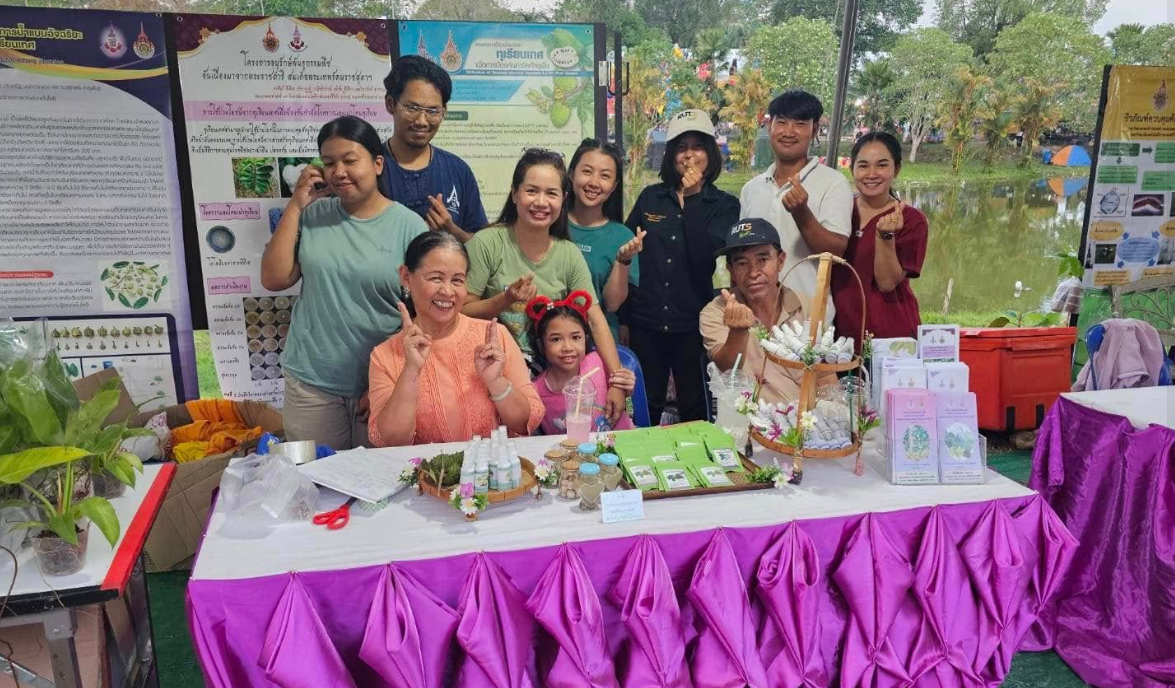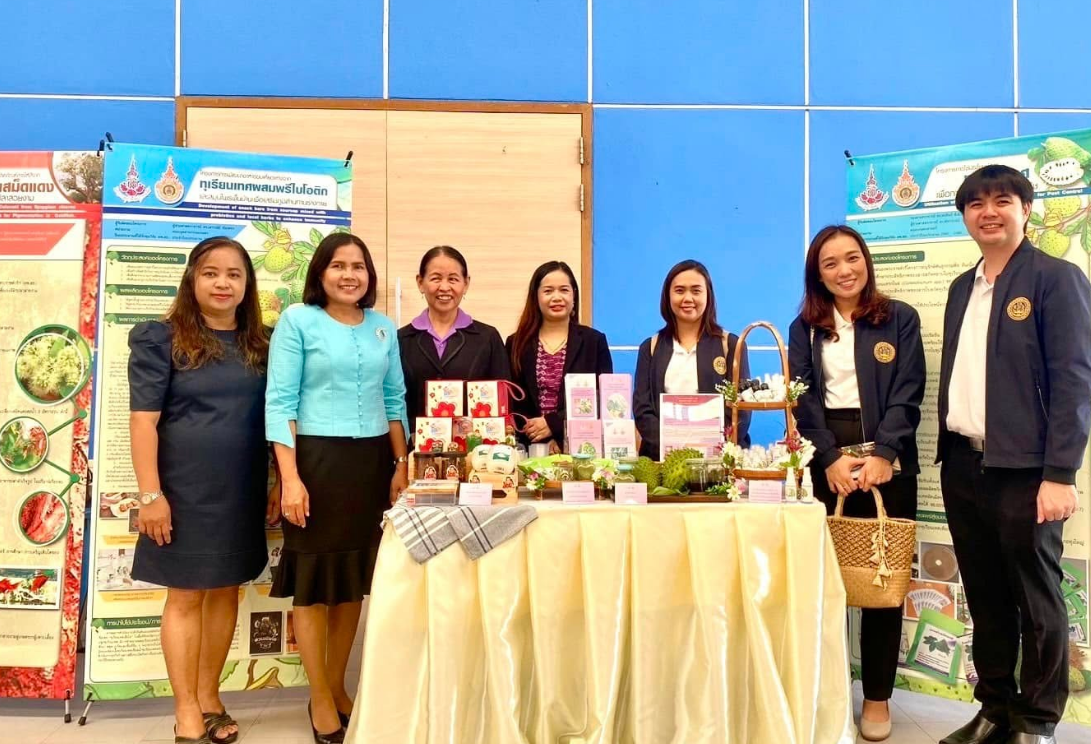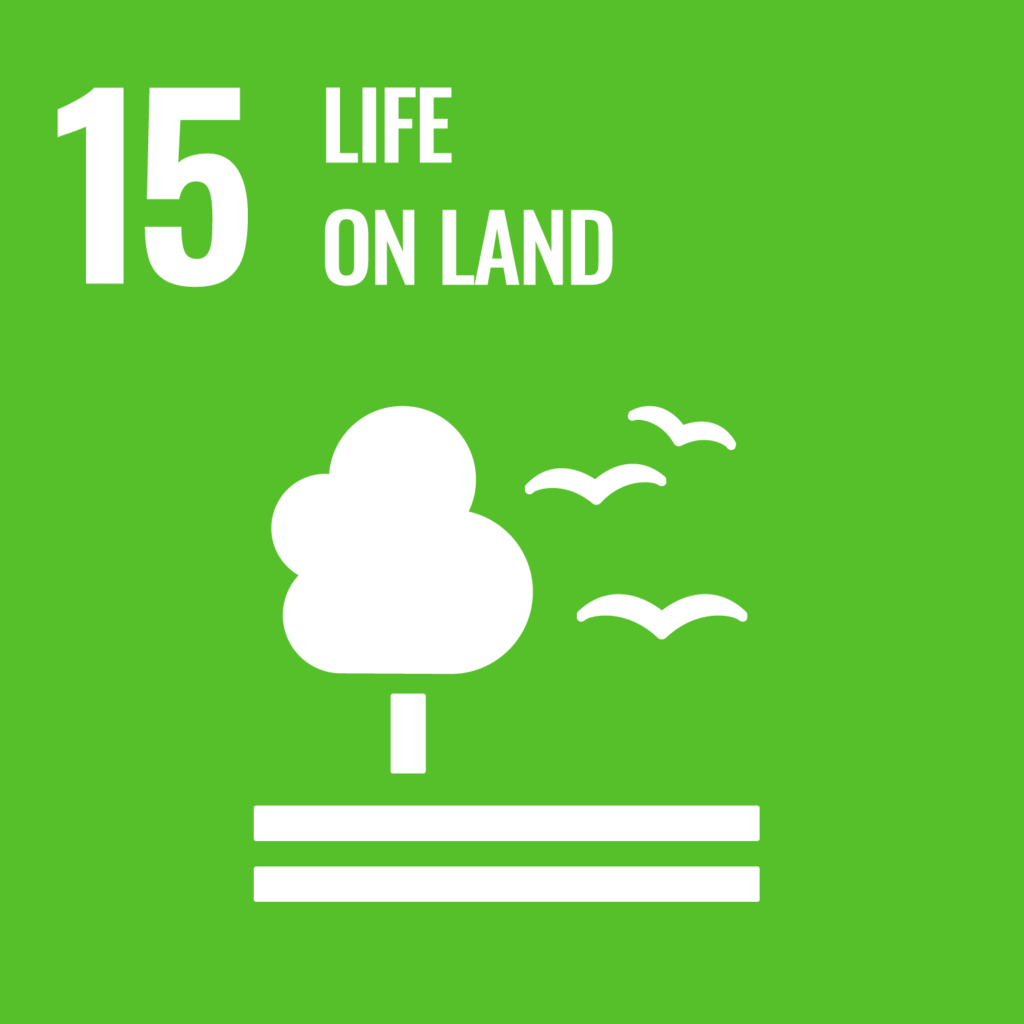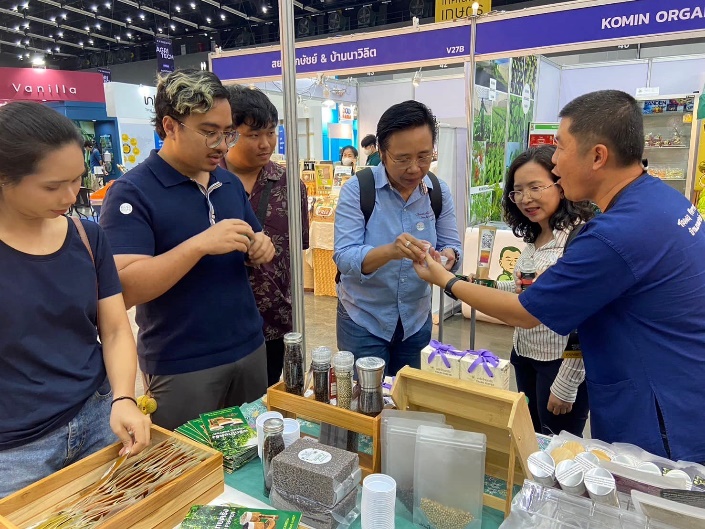Reporters: Asst.Prof.Dr. Prapot Maliwan
Assoc.Prof.Dr. Pornsil Seephueak
Asst.Prof.Dr. Nion Chirapongsathonkul
Asst.Prof.Dr. Worawitoo Meesook
Evidence Date: during 2024 Jan-Dec
Related Indicators: 15.2.5
Details:
In the fiscal year 2024, Associate Professor Dr. Pornsil Seephueak and his research team received research funding from the Plant Genetic Conservation Project under the Royal Initiative of Her Royal Highness Princess Maha Chakri Sirindhorn. The funded project focused on exploring the utilization of soursop (Annona muricata) leaves for managing soil-borne fungi. The study specifically involved the preparation of crude extracts from soursop leaves for use in the control of root and stem rot in durian plants. This research aligns with the national goal of promoting sustainable and environmentally friendly agricultural practices. By investigating natural plant-based solutions, the project also aimed to provide farmers with alternatives to chemical pesticides. Such initiatives demonstrate the importance of combining traditional knowledge with modern scientific methods. Overall, the project contributes to agricultural innovation and long-term sustainability.
The research findings revealed that crude extracts of soursop leaves, when applied at concentrations between 7–10 percent, were effective in suppressing Phytophthora palmivora. This pathogen is the causal agent of root and stem rot in durian, a serious disease that causes significant losses for farmers. Laboratory tests confirmed that the extracts successfully inhibited the growth of fungal mycelium. The promising results highlighted the potential of plant-derived substances to serve as biological fungicides. By demonstrating the antifungal activity of soursop leaf extracts, the research provided strong evidence for practical application in crop protection. These outcomes are particularly valuable for reducing dependency on synthetic fungicides. Furthermore, the findings pave the way for future research on refining extraction methods and application techniques. This approach ensures both effectiveness and farmer accessibility.
Beyond laboratory work, the project also emphasized knowledge transfer to local farming communities. The research team actively shared the results with farmers, demonstrating how to prepare and use soursop leaf extracts for disease management in durian plantations. This outreach encouraged farmers to adopt safer and more sustainable practices in their production systems. The use of natural extracts helps to reduce chemical inputs, thereby lowering production costs and minimizing health risks. It also supports environmental conservation by reducing pesticide contamination in soil and water. Farmers expressed interest in adopting the technique, recognizing its practical benefits. Overall, the project not only advanced scientific knowledge but also provided tangible solutions to agricultural challenges. The integration of research and extension underscores the project’s contribution to sustainability and community well-being.
